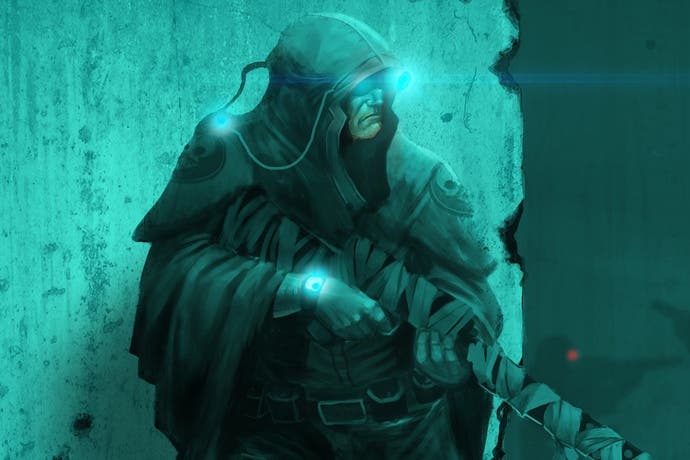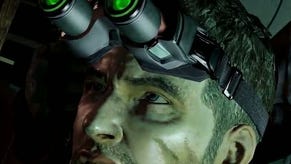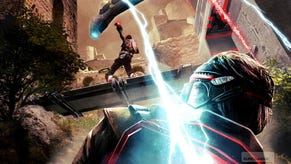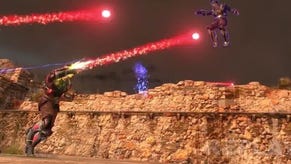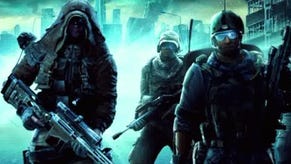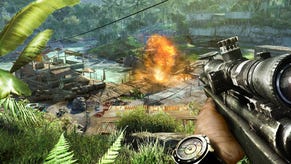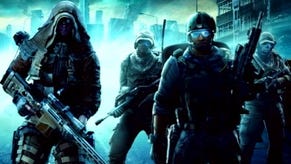Ghost Recon Phantoms review
Tom Clancy's Incredible Gun Collection.
There's an old Chris Rock joke about the price of bullets - about making them so expensive that people would be forced to think very carefully about who they shot. While it's not fair to suggest that the consumables in Tom Clancy's Ghost Recon Phantoms are as pricey as they are in the alternate reality Rock considers, the joke was going through my mind as I hurled my grenades and chambered my magnum rounds. Those things had cost me, and I wondered if it might have been wiser to save up for a new assault rifle instead. After all, the next one would be marginally more effective.
Tom Clancy's Ghost Recon Phantoms is the free-to-play Ghost Recon Online by another name. It's earned this new moniker after graduating from a lengthy open beta phase, during which Marsh Davies, in our Ghost Recon Online review, described it as "rough in places, imperfectly balanced... and occasionally thrilling." I think Marsh was dead on. Is dead on. Two years on, I have found myself occasionally thrilled and, before reading Marsh's reflections on the game, I also found myself having exactly the same thought that he did: when my assault soldier sprints, he leaves the world of Tom Clancy and enters that of Benny Hill. Perhaps this is a crossover?
There are strange things going on here. I've always associated Tom Clancy with that sort of rigid Republicanism that conflates deadly force and rigorously trained young men with justice and retribution, extolling a philosophy that's never far from suggesting that if something threatens your humourless way of life, you can probably blow it up. But, alongside its many, many guns and the grim and expressionless men who wield them, Phantoms also has a host of strange devices that don't really project the same sense of dignity. There's that assault shield that makes you go all Benny Hill. There's a bullet-deflecting force field that feels a bit 1950s sci-fi. There's a microwave weapon which I wouldn't take seriously even if it was in XCOM.
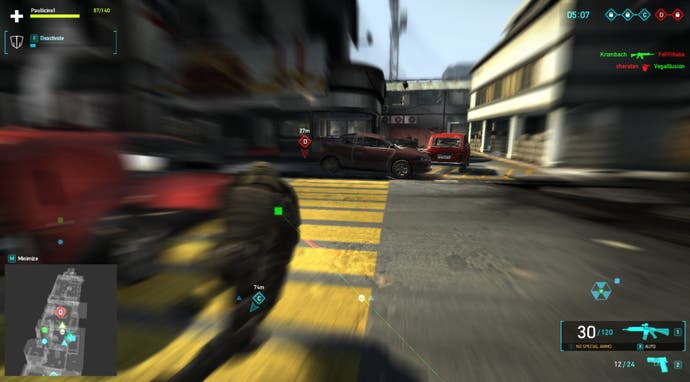
It's Black Hawk Down meets The Gadget Show, and much less of a serious near-future shooter than it wants to be. It's a shame, because the technology could add an interesting twist, but it feels unconvincing and occasionally annoying. When an opponent uses their microwave device to blur your screen, you feel cheated. When you tap a button to deflect incoming fire with your force field, you feel less credible.
Perhaps the guns could make up for it; there are oh so many of those. Each of the three classes you play has access to a particular kind, such as the assault troopers fielding battle rifles and shotguns, or the recon troopers packing SMGs and scoped rifles. Each weapon can be precisely, even intimately, customised, with an array of sights and stocks and grips and so on. The thing is, even with all this lurid fetishisation, many of the guns are remarkably impotent. This is a game in which you can and will shoot a man twice in the back of the head with an assault rifle and watch him walk away.
Even at close range, it can take up to four headshots to kill a person, something that's all too demonstrable in the game's firing range. That's not necessarily a bad thing, mind. It means combat can be extremely forgiving, which is great for new players or those who want to take a few risks in this killing business.
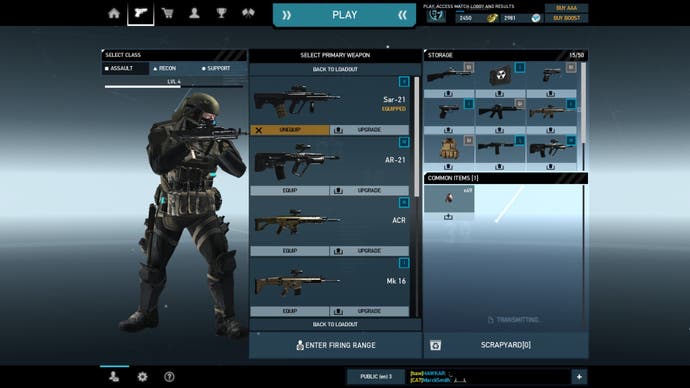
In Phantoms, that business is fairly bog-standard. Men must be shot and points must be captured. The former is best done with ample use of cover, while standard practice now dictates that the latter is achieved by sitting near an objective until it changes colour. It's a symbiotic relationship, of course: the best way to keep something the other team are trying to get hold of is to hide on or near or below or above it, squinting down your ever-roving sights like some murderous and baffled astronomer.
It's not entirely bog-standard because, when you're not framing the rest of reality with your iron sights, all the action is viewed from a third-person perspective. This, like the forgiving damage model, often makes things just a little bit easier. It gives you a wider field of view and a better sense of the action, the sort of sense that makes you feel like you really are in a team. That's further heightened by the friendly markers and silhouettes you see dashing about you, reminding you exactly where your pals are.
Problems arise when the game decides that, no, you can't look down your sights when you're too close to an obstacle, so moving back and forth in cover can give you quite jarring jumps between first- and third-person. The many labels on your HUD can also be invasive and more than a few times I've found a player name, a wire-frame corpse or a text overlay obscuring the already quite small part of an enemy soldier that I want to insert my bullets into. Quite often, I'll dive into cover and find the word CLIMB floating in front of my face, as if the very walls are shouting at me with all the urgency of Brian Blessed.
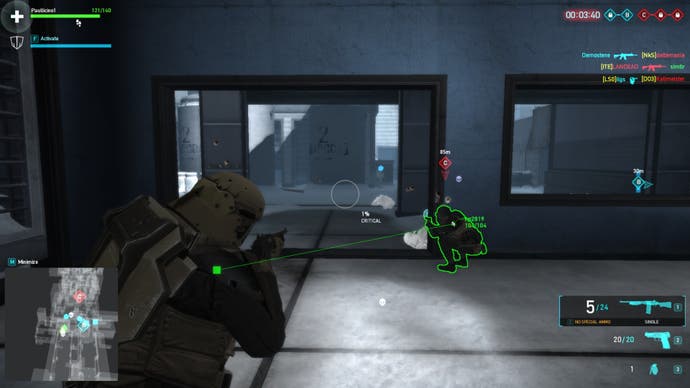
The great thing about deflector shields, wider fields of view and and indifference to bullets in the face is that this encourages those facing opponents with lower-tier weapons to keep moving and not to camp half as much as they might. It encourages beginners to sally forth, which is good because risks are exciting and soldiers shouldn't feel timid. But I'm now talking about tiers and beginners and I need to explain. There's an infrastructure below all these guns and all this war gear.
First, beginners are provided with, though not compelled to use, separate matchmaking. It's something that would be a fine idea if only Ubisoft hadn't (for some strange reason) seriously limited the maps available for them to play on. Beginners can play on two maps, instead of nine, which seems unnecessarily stingy. It feels like players are punished for being inexperienced. It also seems counter-productive, because if beginners aren't going to get to try certain maps, they'll only be at a disadvantage when the game finally determines they can play on these alongside experienced players.
Weapons and gear are tiered. Whatever soldier you play as, you begin with the least remarkable weapons of that sort and, in time, can spend the currency you earn by playing to get access to higher rated gear. Presumably to avoid any serious imbalance, higher-tier weapons don't confer that much of an advantage, but climb high enough and they are slightly better, while all those attachments I mentioned can be bolted onto them to further increase their effectiveness. The sort of increase you might expect with each tier or attachment could be a percentage point or two, and each weapon must be unlocked in turn, one after the other. Consumables like grenades can also be bought and replenished.
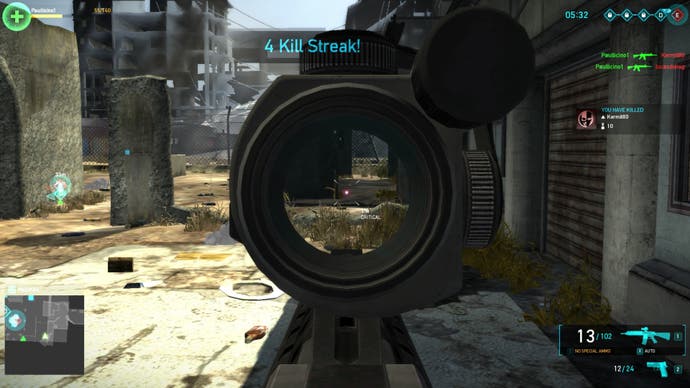
Of course, you can use real money to buy a separate currency which can also unlock all the weapons and gear which the game so jealously guards, allowing you to progress up the tiers much faster and perhaps experience a more appreciable gain. Climb several tiers, buy a new vest and a few bells and whistles for your gun and, yes, you will find you're a little more effective. Whether it was worth it is, perhaps, a matter of opinion.
It's the dictionary definition of grind. You shoot your way through gunfight after occasionally thrilling gunfight to earn yourself a new stock or a small boost to your body armour. Then you buy a new pistol and discover that, although it's available to all the classes you play, you must buy it each time for each class.
If you're content with the unremarkable combat, then fair enough. But should you start to find things a little samey or sense a subtle disadvantage against players using higher-tier gear, Phantoms quickly transforms into something else. What it transforms into is an interminable purgatory where undying soldiers must be reborn again and again as they attempt to shoot their way towards marginally better equipment in order to keep pace in their endless attempts to stand, sit and lie on particularly important parts of a battlefield.
Tom Clancy's Ghost Recon Phantoms isn't a terrible game. It's absolutely fine. But it is a game that I'm afraid I no longer care about. It is, to its credit, also a game that you can play for free and, if you give it your hours, it will certainly grant you its very gradual rewards.
Whatever value you put on your bullets, be sure that you value your time, too. My time on this earth is limited and, after giving some of it in service of this game, I would rather spend the rest of it elsewhere.
